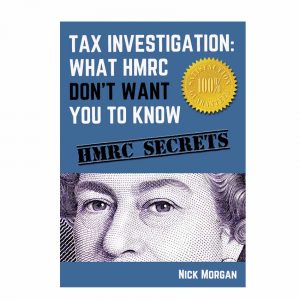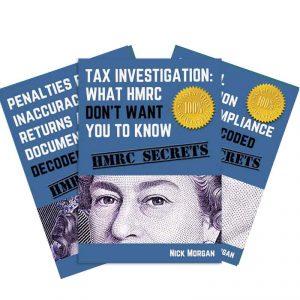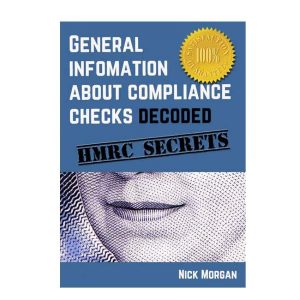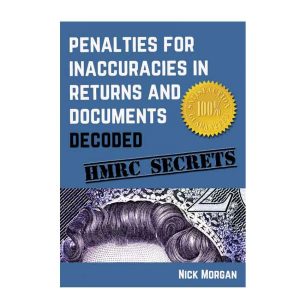HMRC’s Plans To Extract Cash From Bank Accounts
HMRC’s very worrying plans to extract cash from taxpayers’ bank accounts
KEY POINTS
- No independent arbiter proposed, only “safeguards”.
- Risk of unfairness particularly with joint accounts.
- Lack of clarity about previous contact with taxpayers.
- Sufficient powers are already in place.
- The possibility of injustice outweighs the alleged benefit.
Until 2014, citizens in the UK could, at least in the modern era, safely assume that the state would not confiscate property in the name of taxation without proper judicial process.
There is the exception relating to HMRC’s current powers of distraint in relation to established debt. However, those powers are limited because forced entry into premises cannot be undertaken without a magistrate’s warrant (TMA 1970, s 61(2)).
This all makes good sense. Even if A believes that he is owed £X by B, B might have good reason not to pay the sum being demanded by A.
The notion that A could walk away with B’s assets to satisfy the perceived debt is a recipe for chaos. It is only right that creditors should argue their case before a judge who will also have the opportunity to hear what the debtor has to say.
HMRC’s consultation document, Direct Recovery of Debts, published on 6 May 2014, suggests that they find this judicial process far too inconvenient.
Instead, they want parliament to introduce powers in next year’s Finance Bill which would allow them to dip into debtors’ bank accounts without any independent oversight.
To add insult to injury, the document suggests that this would represent a “modernisation” of HMRC’s armoury. In my view, it would represent a giant leap backwards and should be resisted by the entire tax profession.

Keith M Gordon
Wrong thinking
One of the problems with many HMRC officers these days is their firm belief that they are right in what they do and that it is the taxpayer who is always mistaken.
This zeal can often be put down to poor training of officers but, as demonstrated by this latest consultation exercise, it can also affect the thinking of even the most senior officers working at policy level.
For example, one would ordinarily expect any new power being sought by the department to be proportionate. In fact, one should insist on that.
However, the consultation is clear that HMRC want the power unchecked and they are merely looking at giving proportionate “safeguards”. Further, those proposed safeguards are, on the whole, limited to remedying cases where things have gone wrong.
The fallacy of HMRC’s approach can be illustrated by analogy. The proposals are akin to arming the police. In such a situation, one would expect there to be guidelines on the use of weapons to ensure that they are deployed in a proportionate fashion, not just safeguards for when things go wrong.
HMRC’s proposals are equivalent to giving the police carte blanche on the use of firearms, consulting only on how to compensate those who have been shot by mistake.
Mistake
The whole concept is flawed and should not be allowed to proceed in any event. The risk of error is just too great.
But what makes things even worse is the fact that HMRC do not have a blameless record, a point specifically raised by the Treasury Committee of MPs in their report on the 2014 Budget when they criticised the proposals. Further, this is an area where it is clear that mistakes can so easily be predicted to occur. See The Smiths below.
| HMRC decide to exercise their (as yet proposed) powers to secure £10,000 of tax debt from Mr Michael Smith.Their research alerts them to a bank account belonging to Mr M Smith at Michael’s home address and they assume that this is Michael’s account.In fact, the account belongs to Michael’s elderly father, Maurice, who has recently moved to live with his son and his son’s family. |
The risk of unfairness is magnified when one considers HMRC’s proposals with respect to joint accounts.
If an account is in two parties’ names, HMRC will automatically consider themselves entitled to half of the balance (and when there are three names, one-third etc).
In the consultation document, this proposal is described as “strik[ing] a balance between recovering money from debtors while protecting the rights of other account holders”.
In truth, the proposal provides evidence of the fact that HMRC’s zeal to get their hands on hard cash has seriously clouded their thinking.
It is not necessary to be an experienced tax practitioner to recognise that capital can be owned in a joint account in unequal shares (a fact acknowledged by the tax legislation itself in the Income Tax Act 2007, s 836 and s 837).
Neither does it take a great deal of further knowledge or experience to recognise that an account might be held in the name of one taxpayer but with beneficial entitlement held by another. See The Smiths – 2 below.
| Suppose Maurice dies and, in his will, leaves a sum of money for his infant grandchildren, Sophie and Saskia.Due to their young age, accounts are opened by the girls’ father, Michael, which he operates as their trustee.Unless the accounts are clearly labelled as trust accounts (and perhaps even if they are), HMRC will consider themselves entitled to take control of the funds in the accounts because they will assume that the funds in any account in the name of “Michael Smith” belong beneficially to their man. |
Where will this end?
HMRC give the impression that these rules will be used to target hardcore non-payers, who number some 17,000 cases each year. Apparently, about half of those have more than £20,000 in their bank accounts, even though the average debt comes to less than £6,000.
The obvious question is why do HMRC not use their existing powers to collect the debt? HMRC’s responses are summarised below as are my objections to them.
It is easy to see how this easy money might be used in other ways. See Frankie below.
Safeguards in the system
It is only right to acknowledge that the proposals do try to instil some safeguards. However, these are fairly flimsy.
First, HMRC will consider the taxpayer’s banking activity over the previous 12 months and use that information to assess the taxpayer’s likely need for funds in the immediate future to avoid causing hardship. The difficulties with this should be obvious.
| Frankie took part in a tax avoidance scheme in 2002. Despite full disclosure in the 2003 tax return, HMRC failed to open an enquiry. In the meantime, after litigation, the scheme is found to be technically flawed. HMRC issue a discovery assessment seeking to recover the tax they now know to have been under-assessed. Frankie appeals against the assessment on the basis that the conditions for a discovery assessment are not met (following CRC v Charlton [2013] STC 866).Under the powers being introduced in the current Finance Bill, HMRC might argue that they can issue an accelerated payment notice and a follower notice because they have secured a suitable precedent in a case that is relevant to Frankie’s. Such notices would be totally inappropriate in this type of case because Frankie has a wholly separate line of defence. Nevertheless, HMRC have not formally confirmed that they would not issue these notices in cases such as Frankie’s, so one has to assume that they would.The consequences are that Frankie could be obliged to pay a sum of money in circumstances where he would not have had a single opportunity to make representations to an independent tribunal. If HMRC marry up these obligations with their latest proposals, they will be entitled to go one step further and help themselves to Frankie’s money without any judicial oversight at all. |
Most readers will have encountered cases where HMRC’s perspective of the facts is wildly inaccurate (especially when there is the prospect of imminent cash).
In any event, circumstances can change: some urgent purchases are made less regularly than once a year; moreover, banking habits can change.
The proposals appear to be designed by a civil servant who has too little experience of real life.
Second, HMRC will write to the taxpayer to alert him to their proposed withdrawal of his funds and to allow him to make representations.
However, this will be done only once they have secured a hold over the funds so the damage might already have been done.
Third, HMRC’s letter will give the taxpayer 14 calendar days to respond. Given the delays in HMRC’s post actually entering the mail system, this is going to be inadequate in many cases, especially (but not solely) in holiday periods.
Further difficulties are likely to arise given the well-documented problems that taxpayers experience when trying to telephone HMRC.
Although a dedicated helpline is promised, there is no indication given by HMRC whether this will be staffed only in HMRC’s normal business hours or also when errant taxpayers might be able to get to a telephone to discuss such matters.
Warnings to taxpayers
The consultation suggests that taxpayers with a good history of compliance “will typically have been contacted around nine times in total” before HMRC would consider taking funds out of the their bank accounts.
However, it is possible that this statistic is a bit of a red herring because taxpayers with a good history of compliance should not be the subject of such draconian actions.
In any event, HMRC cite a much lower “minimum” guarantee being just four prior forms of contact, including by letter.
It is not clear whether these early forms of contact include the notoriously misleading statements of account and other standard documents that do not emphasise the urgency of the situation, in which case even the figure of four is probably overstating HMRC’s case.
In any event, it appears that HMRC are justifying their proposals on what might happen in an ideal world rather than in the real world in which they do actually operate. For example, HMRC seem to have overlooked the following:
- that many taxpayers (particularly those with debt issues) genuinely suffer fright when it comes to official documentation and fail to take the necessary steps to deal with such correspondence;
- that letters sometimes go astray in the post or are caught up in communal post boxes; and
- that HMRC do not always send documents to the most accurate or up-to-date address.
If previous contact “includes” contact only by letter, one assumes that the minimum of four will also include telephone calls. However, what constitutes a telephone call: an actual conversation or merely a missed call?
Now that taxpayers are moving away from the use of landlines and almost universally adopting mobile telephony (where numbers can change as easily as SIM cards), how can HMRC be sure that they are using the latest number?
In short, the safeguards proposed by HMRC are simply inadequate.
Why are they doing this?
Readers might speculate as to HMRC’s reasons for proposing these additional new powers. The consultation gives three official explanations.
First, HMRC note that distraint applies only to goods and not to cash deposits in a bank account. However, given the restrictions mentioned above, distraint will rarely be a suitable remedy against taxpayers who are unwilling to co-operate with HMRC’s collectors.
Therefore, the current proposals – which require no co-operation from taxpayers – go much further than extending the existing powers of distraint to other types of asset.
Second, HMRC say that to obtain cash from a taxpayer’s bank account, they currently have to apply to the courts for a third-person debt order (previously known as a garnishee order), just like every other creditor.
HMRC complain that this power “gives debtors plenty of notice before enforcement can be taken, providing an opportunity for the debtor to move or dissipate their assets and make debt recovery more difficult”. This complaint reveals a number of flaws in HMRC’s thinking:
- If, as HMRC seem so keen to stress, taxpayers will be given full notice of their indebtedness to HMRC before any action is to be taken under the new proposals, there must be the identical risk of assets being moved or dissipated before HMRC can get their hands on the cash under the proposed rules.
- HMRC do not state how often such pre-emptive moves occur in practice or whether this is, in general, more of a theoretical problem and not a suitable justification for the proposals. Indeed, HMRC acknowledge that applications to the court are “an effective method of enforcement in appropriate cases”.
- HMRC fail to mention that the courts have developed a remedy precisely to avoid such pre-emptive tactics by debtors. This remedy is known as a freezing order, under which a person’s assets are frozen ahead of any substantive legal action. This is broadly similar to what HMRC are now proposing. However, the key differences between freezing orders and HMRC’s proposals are that: there are strict conditions that have to be met before a freezing injunction is given (far stricter than what HMRC propose to impose on themselves), and a person applying for such an order has to persuade a judge that the remedy is appropriate – not merely decide the matter himself.
The department’s third reason for its proposals is that going to the county court can be “a slow and expensive process”.
This is revealing. In the past five years, I have twice been instructed to defend a taxpayer in the county court against HMRC’s allegations of tax debt, in both cases based on an assumption that there had been an agreement between the taxpayer and HMRC under TMA 1970, s 54.
In one case, the taxpayer had been wrongly persuaded into reaching such an agreement, ie by misrepresentation, and, before the matter could be adjudicated on by the district judge, HMRC re-evaluated their position and agreed a lower figure. In the other case, the district judge agreed with me that there had been no s 54 agreement at all and dismissed HMRC’s claim with costs.
The process (as it clearly was in the second of those cases) can indeed be expensive for HMRC. But that is because they have a habit of acting precipitously, and this is why the UK has a judicial system to ensure that checks and balances are in place.
It is all very well for HMRC to highlight that such costs will be avoided under their new proposals, but it would be fairer if they also admitted when and how these costs are incurred.
Some taxpayers do deliberately play the system and avoid their obligations to the Exchequer. In those cases, it is perhaps unfortunate that the state has to incur additional expenses to recover the sums due to HMRC.
However, the consultation document seems to overlook the fact that the costs of enforcement are generally added to any judgment debt. Therefore, in such cases, the costs are not actually borne by the state after all, but ultimately by the debtor.
What if something goes wrong?
The consultation document implicitly recognises that mistakes might well be made and considers remedies that taxpayers might be able to avail themselves of in such cases. Although credit should be given to HMRC for acknowledging this point, it is a shame that they do not use this realisation to reconsider the entire proposals afresh.
The proposed remedies [1] are the subject of additional comment by Hui Ling McCarthy of Gray’s Inn Tax Chambers.
Likely consequences
It is reasonable to assume that, given the risk of HMRC making mistakes, some compliant taxpayers will take steps to avoid or minimise the risk of their accounts being wrongly targeted by HMRC’s actions.
For example, taxpayers are required to identify the beneficial account holder in individual savings accounts (ISAs) by citing their National Insurance number. One way to reduce the risk of an account being associated with a particular taxpayer would be to close down all ISAs and not open any more in the future.
Alternatively, taxpayers might decide to transfer their funds offshore. Indeed, a typical reason for holding funds offshore is to avoid the risk of state interference, so this possibility is not too remote.
Despite the bad press that offshore accounts have, there is nothing unlawful about holding assets overseas as long as the taxpayer declares the income arising in all relevant jurisdictions.
These two consequences would go against established government policy and they would also hamper HMRC in their investigative work into taxpayers’ affairs.
Furthermore, taxpayers closing ISAs and moving funds offshore is hardly going to help the British banking industry. Such outcomes are natural consequences of HMRC’s proposals, but do not seem to have been considered.
Proposed introduction
The consultation document proposes that the new rules be legislated for as part of the 2015 Finance Bill. However, as readers will realise, a general election is due to take place on 7 May 2015, so either, as was once the tradition, the year’s Finance Act will be limited to the bare necessities or, as is becoming increasingly common, a longer Finance Act will be enacted with even less parliamentary scrutiny than now exists.
It would be a travesty if these proposals, assuming that they get that far, were to be enacted before the general election because that would show a complete disregard for taxpayers’ rights by parliamentarians.
Should HMRC try their luck and run the proposals past the incumbents in the Treasury after next May, it is to be hoped that the politicians will carefully weigh up HMRC’s request with the countervailing arguments before deciding whether to proceed with the proposals.
It would be far better if the proposals were scrapped long before then. Given the risks of injustice, the plans are a step too far.
And finally…
The consultation document lists a number of questions concerning the proposals. However, they are all based on the assumption that the underlying idea is worth running with in the first place. In my view, that assumption is wholly misplaced.
The document should contain a further over-arching question: “Is it appropriate that HMRC should have access to funds in taxpayers’ bank accounts without any judicial oversight?”
Readers should respond to the consultation and ask themselves this additional question, and then just say no.










I wrote to my MP about this (Rugby, Con.) He just followed the party line (as usual) and responded by telling me how good an idea it was
Judging by his current performance, he could be out of a job next year 🙂